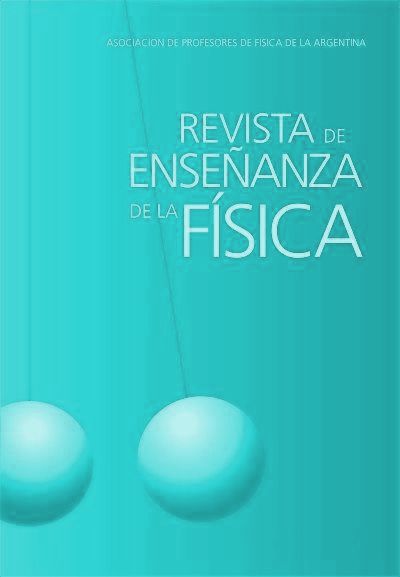Oversimplifications in advanced learning: the case of electromagnetic induction
Keywords:
Advanced learning, Electromagnetic induction, OversimplificationsAbstract
This work identifies some special features of advanced learning in areas of knowledge that are conceptually complex, such as the study of electromagnetic induction. The selected methodology corresponds to a case study in which the sample is made up of advanced (sophomore and senior) students at the Department of Exact Sciences and the Department of Engineering in a state university in Argentina. The paper and pencil solving of a proposed problem with time dependent components that interact among each other is analyzed together with oral post interviews. The results suggest that when these students analyze the posed electromagnetic induction problem, they tend to reduce its complexity by treating related components as independent, presenting incomplete explanations, and treating the variables involved in the analysis of electromagnetic induction as independent of time. These characteristics correspond to oversimplifications that are typical of advanced learning
References
Chabay, R. & Sherwood, B. (2006). Restructuring the introductory electricity and magnetism course. American Journal of Physics, 74(4), 329–336.
Feynman, R., Leighton, R. B. y Sands, M. (1987). Física. Volumen II: Electromagnetismo y material. Wilmington, Delaware: Addison-Wesley Iberoamericana.
Galili, I. & Kaplan, D. (1997). Changing approach to teaching electromagnetism in a conceptually oriented introductory physics course. American Journal of Physics, 65(7).
Galili, I., Kaplan, D. & Lehavi, Y. (2006). Teaching Faraday’s law of electromagnetic induction in an introductory physics course. American Journal of Physics, 74(4), 337-343.
Guisasola, J., Almudí, J. M. y Zuza, K. (2010). Dificultades de los estudiantes universitarios en el aprendizaje de la inducción electromagnética. Revista Brasileira de Ensino de Física, 32(1).
Guisasola, J., Almudí, J. M. & Zuza, K. (2011). University Students’ Understanding of electromagnetic induction. International Journal of Science Education, 35(15), 2693-2717.
Hoyos E (2019). Reseña tesis de doctorado en Enseñanza de las Ciencias mención Física, FCE, UNICEM Argentina. Cambio Conceptual en el Aprendizaje de Fenómenos Físicos Tipo Proceso: Inducción Electromagnética. Revista Electrónica de Investigación en Educación en Ciencias. Año. 15(1), 1-3.
Merriam, S. B. (1998). Qualitative research and case study applications in education. San Francisco: Jossey – Bass Inc.
Patton, M. Q. (1990). Qualitative Evaluation and Research Methods. 2° Edición. Londres: Sage.
Spiro, R. J., Coulson, R. L., Feltovich, P. J. & Anderson, D. K. (2013). Cognitive flexibility theory: Advanced knowledge acquisition in ill-structured domains. En D. E. Alverman, N. J. Unrau & R. B. Ruddell (Eds.) Theoretical models and processes of reading (5ta Ed., pp. 544-557). Newark, DE: International Reading Association.
Downloads
Published
Issue
Section
License

This work is licensed under a Creative Commons Attribution-NonCommercial-NoDerivatives 4.0 International License.
Aquellos autores/as que tengan publicaciones con esta revista, aceptan los términos siguientes:Los autores/as conservarán sus derechos de copiar y redistribuir el material, bajo los términos estipulados en la Licencia de reconocimiento, no comercial, sin obras derivadas de Creative Commons que permite a terceros compartir la obra bajo las siguientes condiciones:
- Reconocimiento — Debe reconocer adecuadamente la autoría, proporcionar un enlace a la licencia e indicar si se han realizado cambios. Puede hacerlo de cualquier manera razonable, pero no de una manera que sugiera que tiene el apoyo del licenciador o lo recibe por el uso que hace.
- NoComercial — No puede utilizar el material para una finalidad comercial.
- SinObraDerivada — Si remezcla, transforma o crea a partir del material, no puede difundir el material modificado.
- Los autores/as podrán adoptar otros acuerdos de licencia no exclusiva de distribución de la versión de la obra publicada (p. ej.: depositarla en un archivo telemático institucional o publicarla en un volumen monográfico) siempre que se indique la publicación inicial en esta revista.
- Se permite y recomienda a los autores/as difundir su obra a través de Internet (p. ej.: en archivos telemáticos institucionales o en su página web) antes y durante el proceso de envío, lo cual puede producir intercambios interesantes y aumentar las citas de la obra publicada. (Véase El efecto del acceso abierto).










